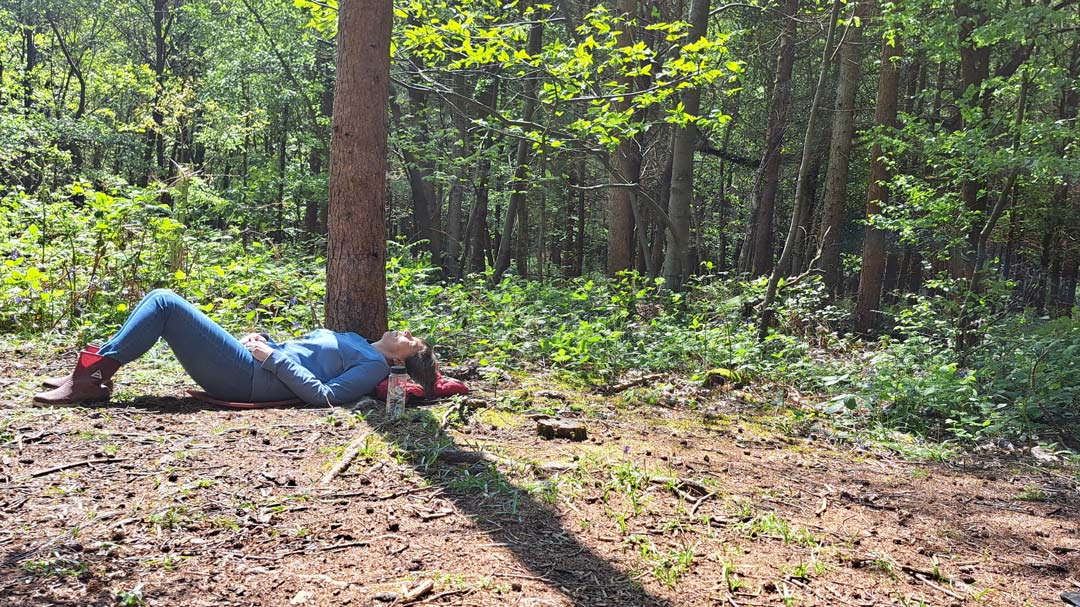The Power of Green Social Prescribing: How Nature is Supporting NHS Mental Health Care Services
Circle of Life Rediscovery CIC’s role as a social prescribing partner and trainer
The UK Health Care System Care Levels
The UK health care system is structured into different levels of care to ensure that people receive appropriate ‘treatment’ for their needs.
The system is divided into primary, secondary, and tertiary care, with mental health services following a similar structure.
The first level of care is Primary Care, which is the first point of contact for a physical or mental health concern with GPs (general practitioners) providing diagnosis, treatment and referrals, including Psychological Therapies services like CBT (Cognitive Behavioral Therapy).
The second level of care is Secondary care where a person is referred by primary care for more specialist treatment. This might include consultants in hospitals, or mental health teams for individuals with moderate to severe mental health conditions such as depression, anxiety or schizophrenia.
The third level of care is Tertiary Care for complex and serious conditions requiring advanced expertise such as cancer or inpatient psychiatric hospitals.
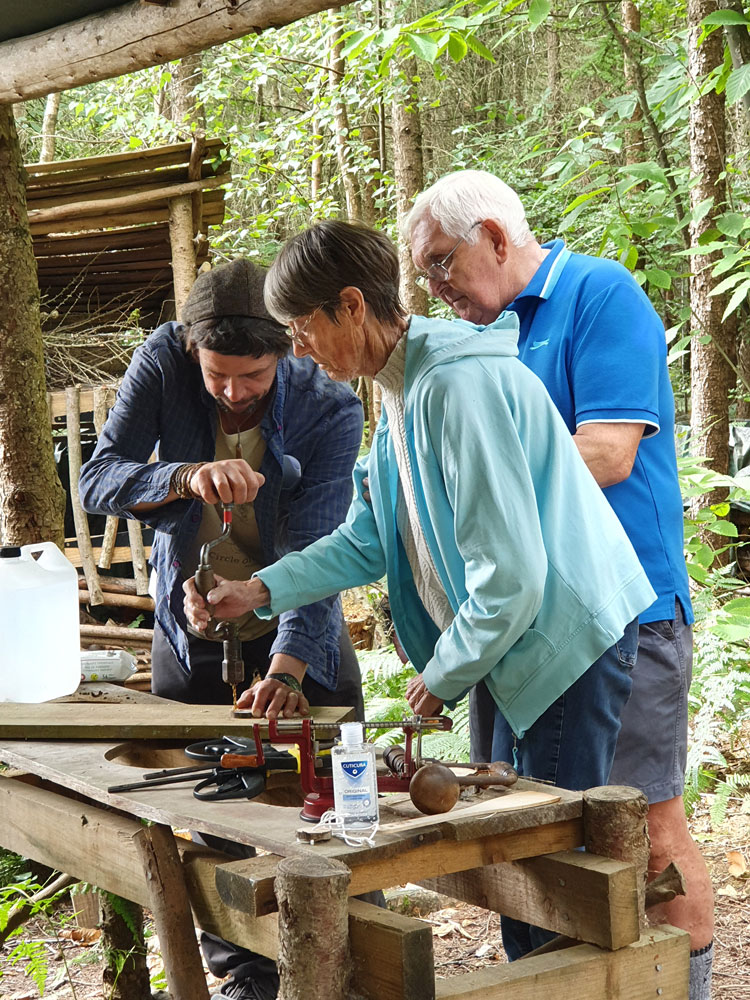
Above: Participants on Circle of Life Rediscovery CIC’s funded project for people with Dementia
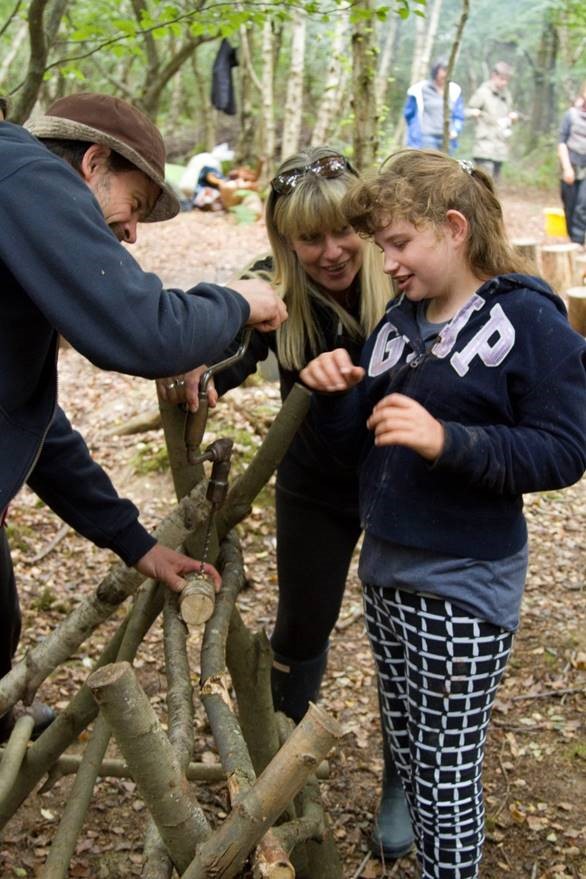
A family enjoying a day run in partnership with Sussex NHS CAMHS LD FISS services.
Circle of Life Rediscovery CIC & NHS Partnerships
For over 20 years Circle of Life Rediscovery CIC has been working in partnership with various teams within the NHS. All our nature-based days and programmes have been fully funded by many hours of grant applications to local trusts and national grants – and this is still the case today!
In 2010 we began working with the East Sussex Child and Adolescent Mental Health (CAMHS) team to develop nature-based programmes for teenagers and families. CAMHS fits within the secondary and tertiary care level of the UK health system in which young people may be offered psychological therapies, support for neurodevelopment conditions, or further intensive treatment (severe eating disorders, mental health difficulties involved in the criminal justice system, complex trauma e.g Looked After Children). If you are interested in more information about Circle of Life Rediscovery CIC’s Nature-based therapeutic interventions, Well-being in Nature Green Tonic Packages please see here.
“The woods are wonderfully freeing. They give me space to breathe, space to sit and reflect and space just to be. My life, looking after my severely disabled, but beautiful son, is hectic and stressful and all-encompassing. Time out in nature, especially as I get older, is vital and refreshes me. Time in the moment. Precious time.”
2024 Parent Day Participant (CAMHS-FISS-LD)
Working alongside NHS teams is for us a critical way to offer these experiences. Most importantly it provides a working relationship that brings together our expertise in nature-based practice and with mental health expertise at the secondary and tertiary levels. It also means we can offer programmes and experiences to harder-to-reach groups, with complex needs, who would not be able to have access to nature therapeutics.
What has become clear to me over the years, is that human wellbeing is often only viewed within the medical model that focuses on symptoms, categorisation and diagnosis or treatment. Whereas, our approach and increasing many other organisations and our understanding of health now, extends well-being to consider social, environmental, emotional cultural factors, such as the importance of social connection for well-being. At the same time, we now recognise the positive impact of outdoor experiences on mental and physical health, as well as how our health is intimately linked to the health of the planet.
Partnerships and collaborations are essential within secondary and tertiary care. Circle of Life Rediscovery continues to work alongside the Family Intensive Support Service (FISS), CAMHS, Learning Disability Team (LD) on the Woodland Project which is now in its fifteenth year! Other partnerships include ADCAMHS (Adoption CAMHS), LACAMHS (Looked After Children), Adult Specialist Services for Dementia, Early Psychosis teams, and Children in Care services. Read case studies of these projects and collaborations here.
Consistent with the 2016 Natural England Report’s (Bragg & Aitkens) literature review, our therapeutic model combines the following components to bring about benefits to mental health:
i) the natural environment,
ii) meaningful activities and
iii) the social context.
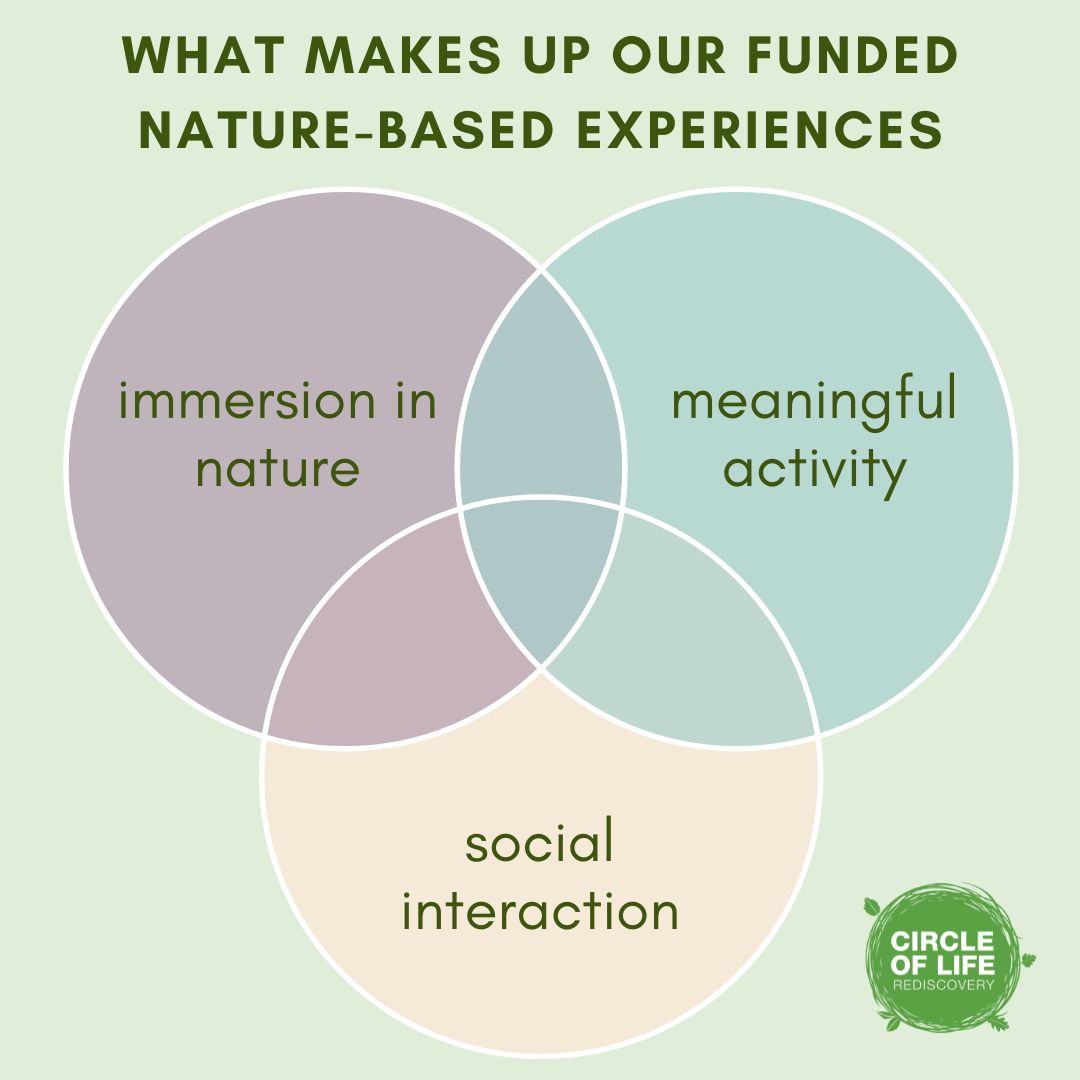
Green & Social Prescribing
Social prescribing and Green social prescribing are about the practice of supporting people to engage in a range of activities (that could be ‘green’) to improve their mental health. As the provision grows in the UK, it usually sits within primary care, where the GP will prescribe a ‘social’ or ‘green’ prescription.
Social prescribing Link Workers (and other trusted professionals in allied roles) connect people to community groups and agencies for practical and emotional support. This is often based on a personalised “What Matters to You” conversation.
Within our practice, our programmes are based on co-production, where the sessions are built from our own observations and conversations as to what the individuals would like to experience. These are not necessarily ‘activities’ but may be practices, such as gratitude!
It is known within primary care that many people come for help because they are socially isolated – and that this can create mental and physical illness. Read more on Why Loneliness Is a Killer here. Our well-being is a social and ecological issue shaped by relationships with self, others and the natural world. Many of our experiences of stress, grief, and loneliness are seen as conditions to be treated rather than natural responses to life’s challenges.
However, we do need both medical and non-medical approaches, and I believe that people in need of secondary or tertiary care often benefit even more from accessing the natural world, held within a safe enough container.
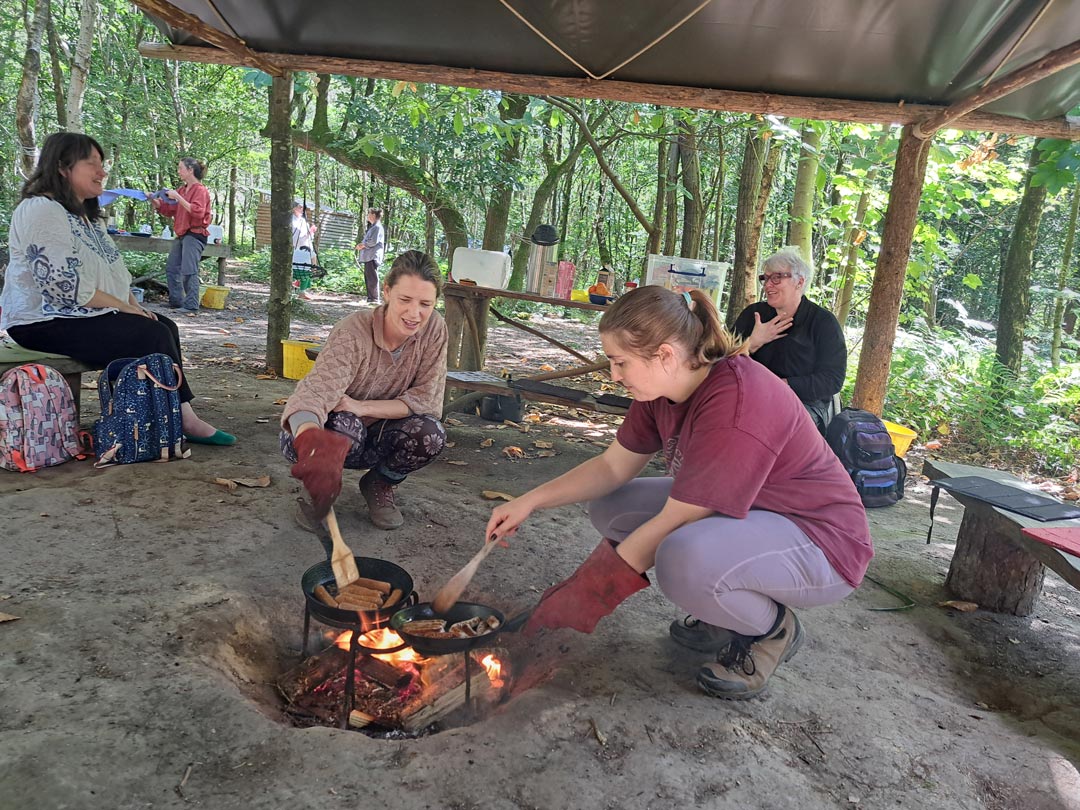
Above: Social interaction during a Woodland Project. The project by Circle of Life Rediscovery and Sussex NHS CAMHS LD FISS services offers experiences in nature for the parents of children with severe physical or learning disability and families who have a child experiencing mental health issues.
Sustainability and the future
Green Prescription still largely relies on the voluntary sector, such as organisations like Circle of Life Rediscovery CIC to raise money to fund green or social programmes that can either be referred into or co-created by partnership.
The average cost per participant engaged in nature-based activities was £507 according to the Green Social Prescribing Test and Learn Pilot National Evaluation Jan 2024. This means that compared with other mental health interventions, such as behavioural activation, Cognitive Behavioural Therapy (CBT), early intervention for psychosis and collaborative care for depression, nature-based activities are a relatively cost-efficient way to support people across a wide spectrum of mental health needs.
As a training organisation, we decided over eight years ago to develop the Certificate in Nature-based Practice Training so that allied health professionals, therapists, psychologists and psychiatrists, could learn how to offer safe outdoor practice and to take their practice outdoors.
“My experience doing this course has really transformed my thinking regarding nature-based practice. I have managed to apply parts of what I learnt within my work environment and have full backing from colleagues regarding trying to utilise what I learnt. I never realised the true impact outdoors can have on an individual and team level and hope to see it being prescribed in the future as a treatment for certain health problems.” Certificate in Nature-based Practice 2024 Participant – Senior Nurse and Education Fellow, Chichester
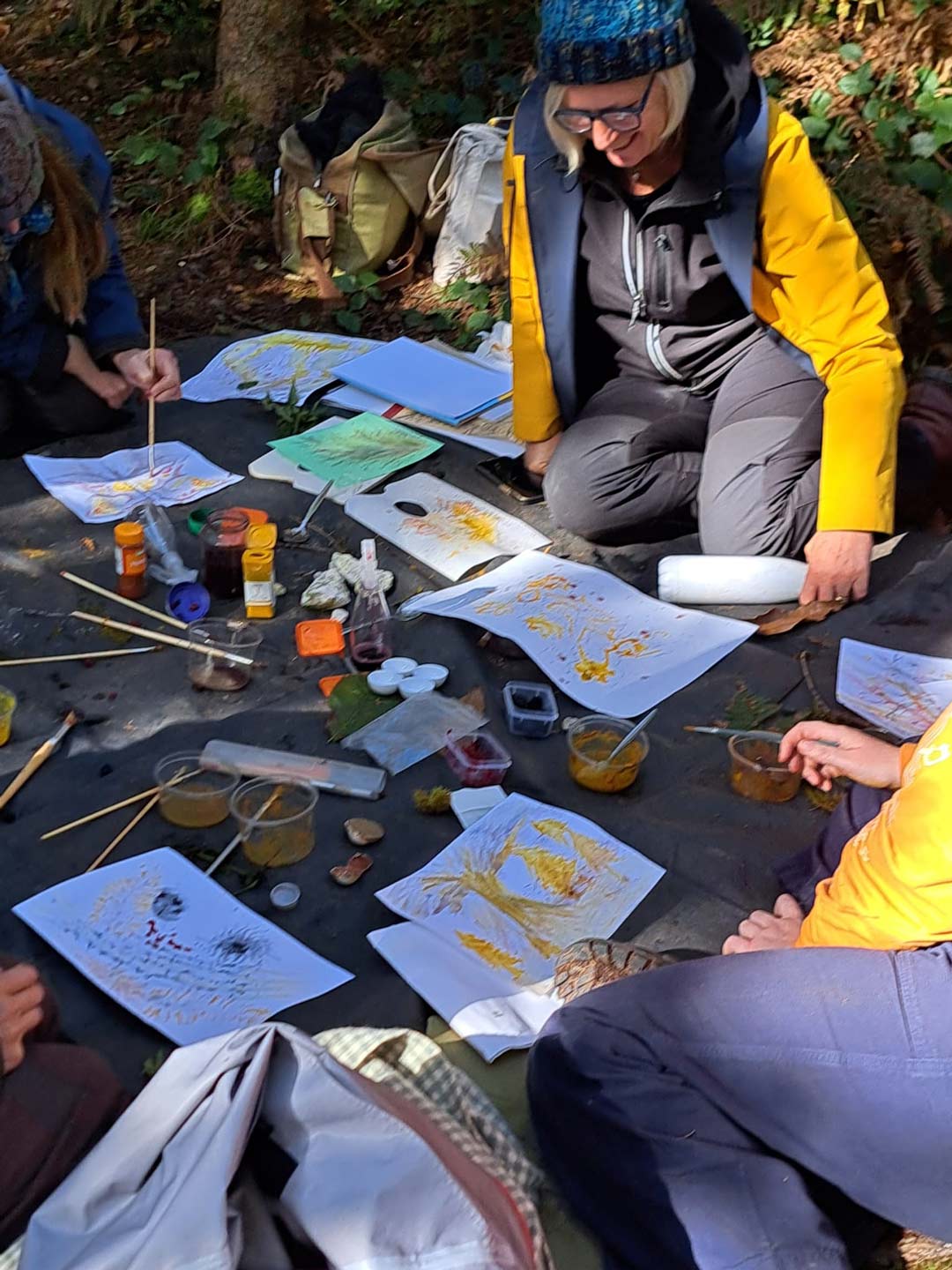
Participants on the Certificate in Nature-based Practice Training learning to take their therapeutic practices outdoors.
Testimonial video from a participant in the Certificate in Nature-based Practice Training
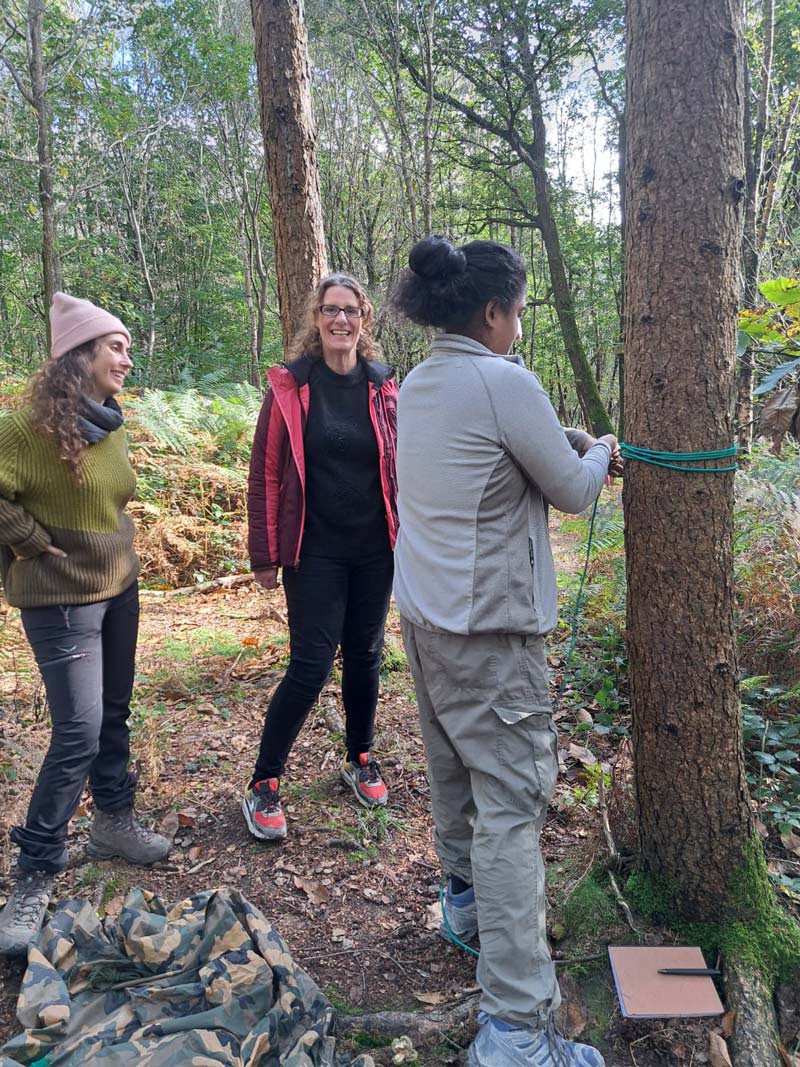
In 2023 & 2024, supported by Natural England, we offered 40 free training places to practitioners working within secondary and tertiary health care. The intention was to make the benefits of this work available within the health service and not reliant on external funders, which is inevitably unstable.
We hope more health practitioners integrate nature-based practices into their teams, ensuring that even those with complex needs—who may not qualify for a ‘green prescription’—can access social and nature-based activities. This not only enhances wellbeing but also recognises the vital role of the more-than-human world in supporting our health.
Find out more:
- Read our green social prescribing and nature-based intervention case studies
- Read more: Integrating Nature-based Interventions into the NHS and our Natural England Partnerships
- Download and read our report 2024 research report: Max Hope (2024) Exploring the impact of nature-based training on practitioners in mental health and public, primary, and community health services
- More information about working with Circle of Life Rediscovery CIC via our Nature-based therapeutic interventions, Well-being in Nature Green Tonic Packages
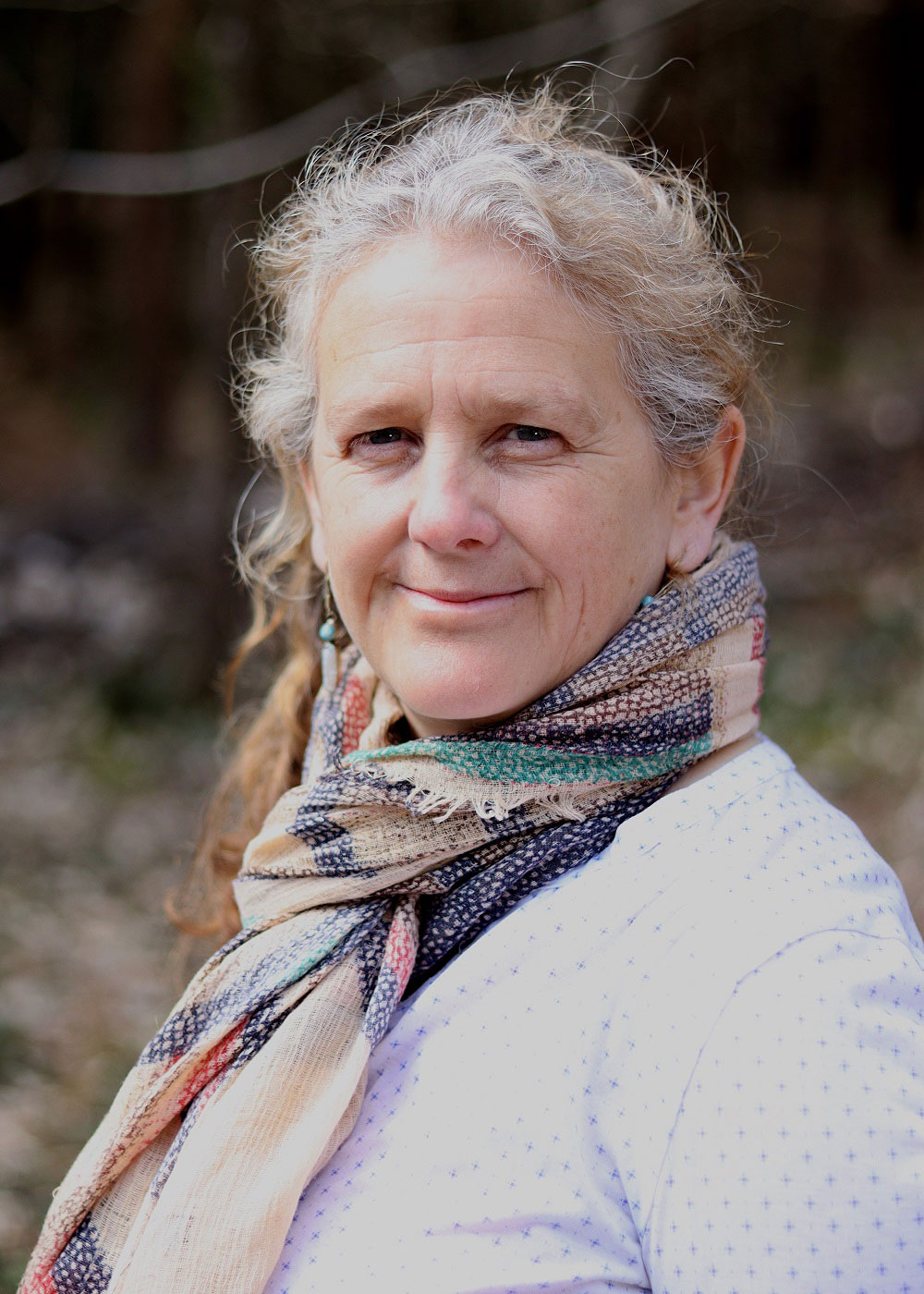
About The Author
Marina Robb, Circle of Life Rediscovery CIC Director and FSA Endorsed Forest School Trainer.
Marina has been working in the field of education and eco-therapy for over 25 years and has pioneers’ nature-based practice within the National Health System.
Marina is a qualified teacher (PGCE) and since 1989 has studied Environmental Education (MA), Environmental Management (BSc) and Social Research (MSc). She also holds an Advanced Training Certificate: Ecotherapy, Nature Connection Practices that Heal with Pacifica Graduate Institute.
She has pioneered nature programmes within the health sector, and has received funding from Natural England, Mind and The National Lottery, amongst other grant makers for her outdoor work with teenagers, families and young people with mental health issues, disabilities, dementia and early psychosis.
Marina’s book, ‘Learning with Nature’, forwarded by Chris Packham, is considered a must-have book for Forest School & Outdoor practitioners. Her second book, ‘The Essential Guide to Forest School and Nature Pedagogy’ contains everything you need to know from theory to practice.
Marina co-chairs a Community Benefit Society which manages a community woodland (CBS), used to provide access to nature for marginalised groups. She believes that everyone should have the right to access nature.

